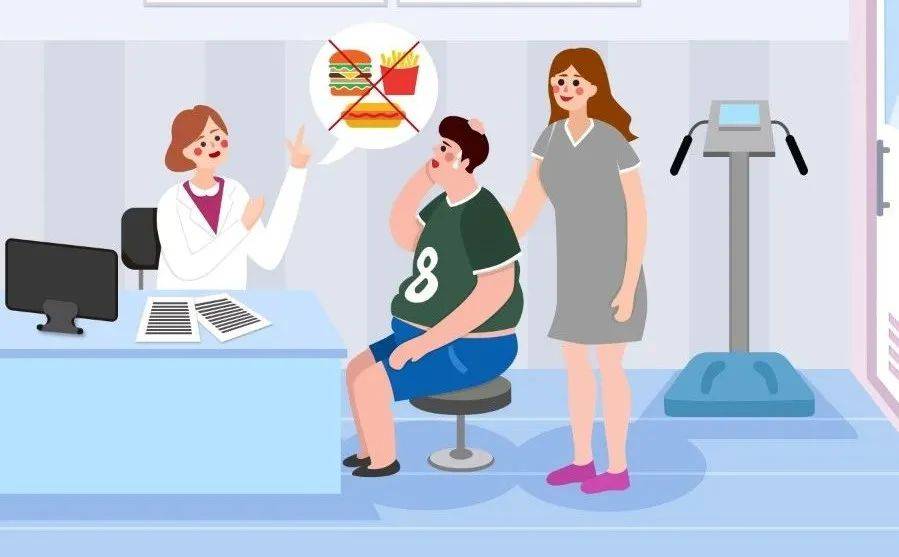Weight management requires the joint effort and relentless persistence of both parents and children. Parents can assess if their child is at risk of being overweight or obese (see the table at the end for details). If the child is at a higher risk of being overweight or obese, it is advisable for parents to encourage the child to manage their weight.
Weight management is not merely about weighing oneself daily to check for changes; it involves developing self-discipline, keeping weight within an ideal range, such as maintaining a regular schedule, eating scientifically, balancing food intake with physical activity, and engaging in outdoor activities. Scientific weight loss aims to reduce body fat while ensuring a balanced diet that supports the child’s growth and development.
During the summer vacation, overweight or obese “little ones” can take full advantage of the break to increase physical activity and maintain a healthy weight.
Q: How can I help my child stick to weight loss in the long term?
A: Starting with dietary behavior interventions is a good approach. It is recommended that parents work with their child to identify the main risk factors for being overweight or obese, with the help of a doctor, set behavior correction goals, and devise plans for rewards and punishments for behavior correction. For instance, for children with a poor diet (deficient in vegetables, fruits, and whole grains, and consuming whole-fat milk), it is important to learn about the nutritional value of foods and understand the significance of incorporating various foods into daily meals; parents can encourage children to study the concept of a “balanced plate” of foods with peers who are also overweight or obese, providing ample vegetables, fruits, etc., aiming for vegetables, fruits, grains, and proteins to each occupy about 1/4 of the plate.
Weight loss should become a unified effort within the surrounding community, not solely the child’s individual endeavor. During the weight loss process, parents should frequently encourage their child and help them achieve their weight loss goals.
Q: If my child has lost some weight, can I let them have some snacks?
A: During the summer break, children tend to eat irregularly and have more opportunities to snack, leading to excessive calorie intake and an increased risk of being overweight or obese. How can we ensure that children snack wisely? When choosing snacks, follow the principles of “fresh, natural, hygienic, and rich in nutrients.” For instance, for fruits, opt for low-sugar varieties such as strawberries or blueberries. It’s not advisable to substitute juice for whole fruits, as although juice retains most vitamins, it has a very high sugar content and loses a significant portion of dietary fiber. Dairy options can include low-fat milk and unsweetened yogurt. For nuts, choose plain walnuts, pine nuts, and almonds to control salt intake.
In addition to the types of snacks mentioned above, parents should also control the quantity and timing of snacks for their children. The snacking time should be at least 1.5 hours away from meal times, and the frequency of snacking should not exceed three times a day; snacking before bedtime is not allowed. Only by developing a habit of planned snacking can one enjoy the pleasure of food.
Q: I want to help my child lose weight, but I can’t resist buying them tasty treats. What should I do?
A: For children needing to lose weight, parents should understand how much energy their child needs daily and the energy content of different foods; this allows for targeted adjustments to the diet plan. One cannot have the child lose weight while simultaneously preparing many delicious snacks. Some parents feel that snacks will make the child gain weight, so they provide a lot of fruit to supplement vitamin C without worrying about weight; however, this approach is incorrect. Fruits such as durian, avocado, lychee, and banana are high in energy. Excessive intake of these fruits can lead children to convert fructose into triglycerides, stored in the body, resulting in weight gain. When 20% of dietary energy comes from fruits, triglyceride levels will increase.
In the child’s weight loss journey, parental modeling is crucial. Many children are picky eaters and reluctant to eat vegetables, which is often related to the family’s dietary habits. When parents exhibit picky or selective eating behaviors, children are also likely to do the same. Therefore, it is recommended that parents themselves maintain a balanced diet and set a good example for their children.
Q: Doctor


